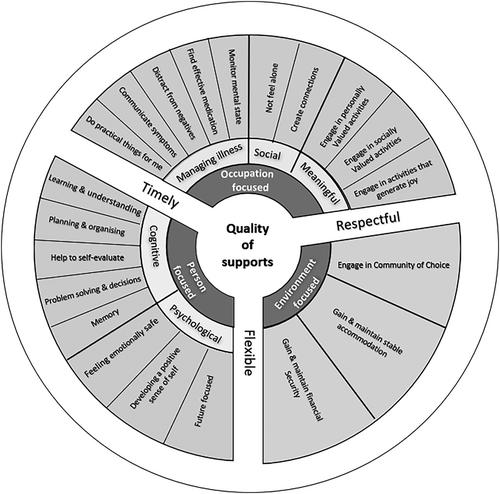People with schizophrenia are more likely to be hospitalised than any other psychiatric diagnosis. Occupational therapists working in mental health are often required to assess and recommend supports that will assist people with schizophrenia to live successfully in the community. There is little research exploring consumer perspectives regarding the support they find useful to stay out of the hospital. The aim of this study was to explore what supports people living with schizophrenia identify as helping them to live in the community and stay out of the hospital.
Qualitative data were collected via semi-structured interviews with adult consumers (N = 18) diagnosed with schizophrenia. Data were thematically analysed using constant comparative analysis methods. Inductive analysis was followed by a deductive phase of analysis.
Participants highlighted personal-, occupational- and environmental-focused supports. Person-focused supports addressed cognitive and psychological needs. Occupation-focused supports included assisting people to manage daily life with a mental illness; engage in social activities; and engage in meaningful activities. Environment-focused supports included access to financial security; accommodation security; and community of choice. In addition to types of support, participants highlighted the importance of quality of support including the need for flexible; timely; and non-judgemental support.
These results emphasise the multifaceted nature of support required by people living with schizophrenia to stay out of the hospital. Both type and quality of support are important. People in this study were able to clearly articulate the types and qualities of support that were important to them. Occupational therapists may benefit from greater collaboration with consumers during assessments of support needs and the development of recommendations. Further exploration of how occupational therapists identify people's multifaceted support needs is required.


